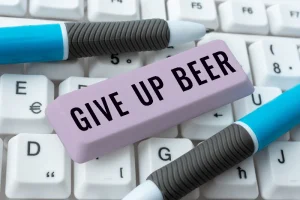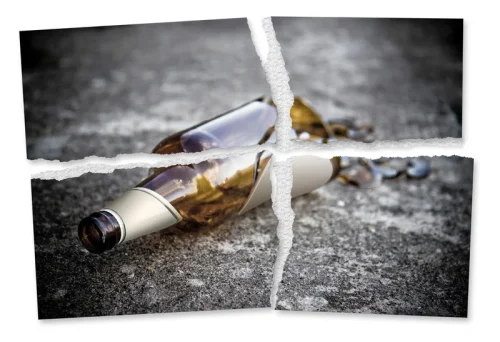
With gratitude comes a less selfish attitude so they can focus their attention on others. Practicing gratitude in recovery helps people to become more optimistic, have more in control of their lives, and be less stressed. They discuss a study that determined that people who practiced gratitude journaling three or more times per week reported being less happy than those who wrote once or twice per week. If you register three-to-five things every day, it can become habitual, and you can lose the sincerity and focus of practicing gratitude.
Celebrate Recovery Lesson 22 Notes and Prayer
- Immigration is far from a fiscal fix-all for Social Security’s challenges.
- Using a bulletin board or poster board put pictures, graphics, or words that help you remember what you’re grateful for in life.
- One of the best ways to overcome this spiritual malady is to practice gratitude.
- We’re ready to make sure you have the support you need to achieve lifelong recovery.
- Recovery is difficult, and maintaining a sense of gratitude can be crucial to a full and lasting recovery.
The researchers used data from the Nurses’ Health Study to assess levels of gratitude and mortality among 49,275 older women. They observed 4,608 deaths over the course of the study period; of the specific causes studied, cardiovascular disease was most common. She started the site after struggling with depression, bulimia, c-PTSD, and toxic shame so she could recycle her former pain into something useful and inspire others do the same.
The Many Benefits of Gratitude
Even if you feel strong in recovery, try these exercises to make gratitude a habit. This will help you in times when your will falters or something bad happens and you need to be resilient. Again, be specific with what hurting them would look like, https://ecosoberhouse.com/article/the-5-risks-of-drinking-after-work/ again. Make a list of all the things and people affected if you were to relapse. This journal prompt is a helpful tool to keep in your recovery toolbox. Did you know that performing random acts of kindness is good for your mental health?
Gratitude Keeps Resentment in Check and Measures Our Spiritual Welfare
A positive outlook is important because addiction itself fosters a host of negative emotions and ways of seeing the world. In the grip of an addiction, it’s easy to feel victimized, angry, and trapped. As the addiction progresses, substance abusers find themselves losing many of the things they valued in their lives, such as relationships, jobs and even homes. That leads to a cycle of despair, hopelessness and other negative feelings, which in turn lead to returning to being dependent on addictive substances.

For people working toward recovery, a journal can be a place to track progress, uncover causes for addiction, and figure out new ways of dealing with stressful situations. Gratitude doesn’t just happen, but it can be easy to develop, just by being mindful as you move through daily life. Creating a “gratitude practice” starts with simply paying attention to good things large and small – and tools such as journals, lists or meditation can help. This lesson on gratitude is a great way to start this practice, especially if you have not been practicing thus far in your recovery. Grab a notebook and start a gratitude list, naming everything you are grateful for in a short amount of time (for example, 10 minutes).

- The premise behind the 4 As of gratitude is that there is always something to be grateful for.
- Throughout each day, be mindful of your interactions and observations of others.
- There are many gratitude journals out there that are formatted for you to praise God as part of your gratitude.
- It can help improve your physical and mental health by fostering positive thinking.
You can set a reminder on your phone or choose a specific time of the day to practice gratitude. In addiction recovery, practicing gratitude doesn’t have to be complicated. Gratitude isn’t dependent on having an abundance of things to be thankful for; it’s about recognizing and appreciating the small and ordinary aspects of our lives. Expressing gratitude doesn’t demand a significant time commitment or effort; it’s about finding methods that align with our individual preferences and lifestyles.
#7. Engage In Prayer.
- The body needs healthy foods to heal from addiction, so improving your diet can play a major part in recovery.
- For example, you can spend time with friends, go swimming, go for hikes, go see your favorite movies, get a massage, or anything else that makes you happy.
- One of the simplest and most effective ways to practice gratitude is to keep a gratitude journal.
- If you too could benefit from nurturing more positive emotions—and let’s face it, we all could—try asking yourself one of these questions and see where they take you.
- You stub your toe on the way out of bed or you spill your coffee all over your clean shirt?
Gratitude can help you cope with the difficulties of recovery by boosting your emotional resources and strengthening your coping skills. Many people who struggle with addiction also suffer from co-occurring mental health why is gratitude important in recovery issues, such as depression, anxiety, PTSD, or bipolar disorder. Abusing drugs or alcohol can take a toll on your physical health, causing problems such as liver damage, heart disease, infections, or chronic pain.
Strengthens your addiction recovery
While this is one way of showing gratitude, it is not the only way. One of the main obstacles to a successful recovery is avoiding triggers and cravings that can lead to relapse. Gratitude can help you overcome these obstacles by shifting your focus from what you lack to what you have. Gratitude can help you concentrate on the positive aspects of your situation rather than dwelling on the negative ones. It can also help you cope with stress, improve mood, and enhance relationships. That’s why gratitude is so important for people recovering from addiction, especially in early recovery.
